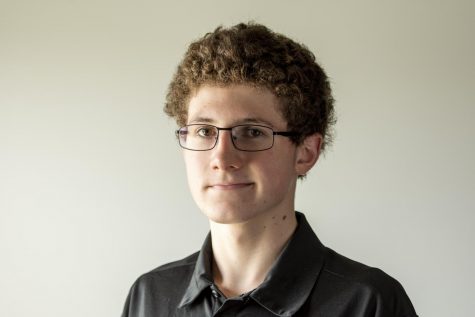
OPINION: Courage to Change
Have you ever been in line for a roller coaster and then fled upon reaching the ride? Despite all the time you invested in that line, all the money spent on that ticket, you chose to walk about from the promised excitement you thought would be so rewarding. Why? Because of fear.
The odds of death or injury on most amusement park rides is next to nothing; all the people in front of you were just fine. In fact, you probably don’t even think you’d face adversity on the ride; yet, you’re still afraid. Throughout our lives, we all feel fear that is self-acknowledged as irrational. We fear taking the initiative to change from the line onto the coaster. We fear change and seek continuity, even when it is to our detriment. Both society and individuals should be more willing, more eager to embrace change when it is advantageous.
The root of inaction is fear of the unknown. The old saying goes, “Pick the devil you know before the one you don’t”. Though this line of thinking sounds logical, it is ludicrous. It reflects a kind of self-condescending logic that one cannot trust one’s self to correctly evaluate the positive and negative consequences of a decision. People almost forget that we are human, that we are rational creatures. Additionally, the only way to correct one’s reasoning is through trial and error; denying one’s self a chance to reason is denying oneself a chance to grow.
As my picture at the bottom of the page demonstrates, I wear glasses. If asked why I wear glasses, I would likely respond that I need them to see; however, there are alternatives like contacts. I have considered contacts; in fact, I think for a multitude of reasons contacts are better than glasses. So, the question is why do I have glasses instead of contacts. It is out of fear of change. Specifically, the uncertainty of change. I know that contacts work as well as glasses, that they are pretty much as safe as glasses, that they are more comfortable than glasses; yet, I can’t imagine them that way. Because I fear I am wrong, I make an irrational decision. There is no logical difference between a decision to change and one to stay the same. They are both decisions. They should involve careful, equal evaluation of two or more options. Robert Frost wrote about choosing between two paths in a woods, but really he was choosing between three: two paths on which to move and one on which to sit. Choosing to sit is as much a choice as the others; similar in all respects, except for being worse.
Following the logic that choosing not to choose is not a choice, people often resist choice out of mental sloth. Making a choice is difficult: you suffer the stress of risking something and, if done correctly, the mental labor of careful evaluation of two or more options. Much like a runner will stop when she is exhausted of oxygen, a chooser may stop when she is exhausted of mental energy; however, a runner won’t go anywhere without running; a chooser won’t go anywhere without choosing. It may feel like freedom to refuse to choose, but there is no freedom from choice. Since choosing not to choose is a choice, a choice must be made. This choice can be logical or it can be illogical; either way, it has consequences.
In the nineteenth century, the British created the world’s largest empire and from a tiny ice cube of a nation, dominated international affairs for a century. In contrast, China, with more people and production capacity than any other country in the world, becomes dominated by other countries. The difference was the openness to change. That the British public was dominated by Whigs who were eager to explore the world and change with it gave Britain the approach to change necessary for world domination; that the unwilling-to-change Chinese “Boxers” fought against any adjustments to the status quo doomed China to weakness; that the post-Mao Chinese Communists were willing to abandon tradition and Communism allowed China to regain the title of second world superpower.
Choices have consequences; better choices have better consequences and worse choices have worse consequences. Because there is no escape from choice, only the consequences of the choice should be evaluated, not whether it involves a change. If an attitude towards choice can create and destroy empires, it can create and destroy your future.
The last major cause of reluctance to change is fear of what others will think. As social creatures, humans have an extreme fear of being outcast. While this fear is rational, its application to fearing change is not. If a change will impact one’s relationships, it should be incorporated into one’s cost benefit analysis. However, it probably won’t have any impact. Humans—especially teenagers—suffer from an irrational egotism. In our minds, we are the protagonist and the world is our story. While this is obviously ridiculous—the world existed before each individual and will exist beyond one’s life, beyond humanity’s existence, it is biological and inescapable. One shouldn’t try to correct it—I’ve tried and failed—but instead incorporate it into one’s plan of reasoning. If you fear a change will impact people’s perception of you, then ask other people. They probably won’t care and, if they do, you need to consider how that reflects upon them.
Because I will not get contacts and you probably will not make a change due to a high-school newspaper column, writing this seems fruitless and perhaps it is. Nevertheless, I have hope. Hope that we can acknowledge our own shortcomings in resisting change. Hope that we can encourage others to embrace change. Hope that if our generation changes the societal understanding of change, people like me and you will be more willing to change.
Though fearing change may seem like the most basic and expected human deficiency in reason, it is still vitally important. While skipping-a-rollercoaster’s chief punishment is never-ending taunting by one’s younger sister, skipping a job interview or missing a college application deadline has real consequences which can impact one’s place in life. Fear of addressing healthcare policy has killed thousands of people and left many more bankrupt. Decisions matter and too much to leave for irrational emotions. Decisions matter, so let’s go change the world.

Mac Malambri is a pre-IB sophomore who loves politics, economics, and philosophy.